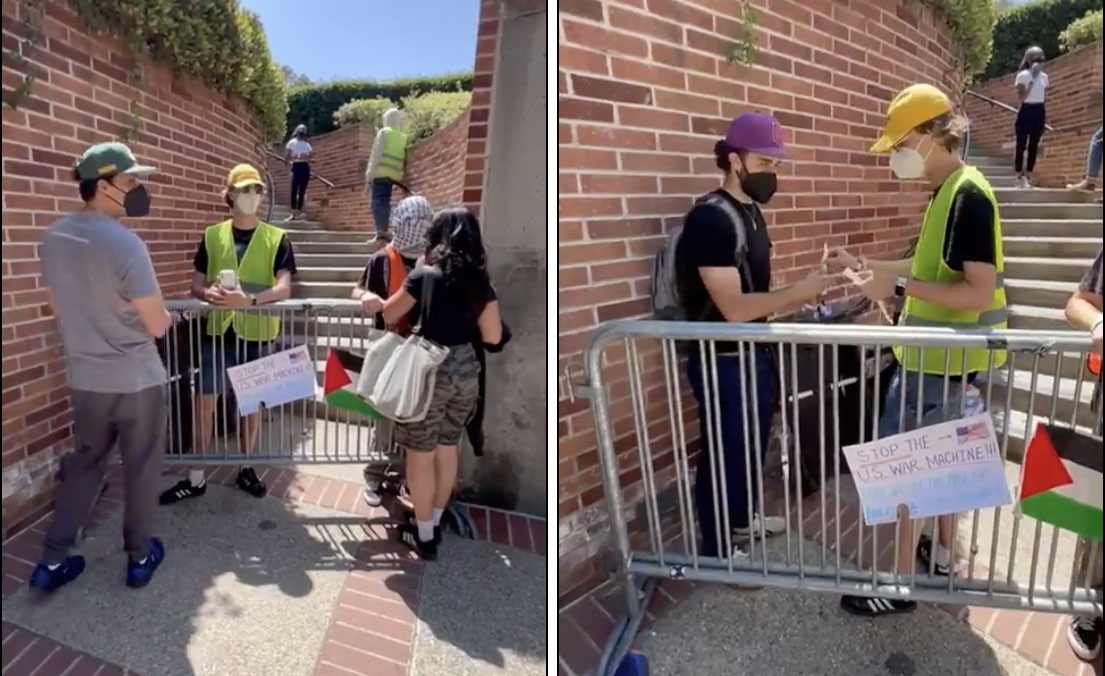“Every show seems to be based on murder. It’s like our society is … fascinated with it. It shouldn’t be entertainment by any means. It needs to be stopped.”
This quote introduces Episode 68 of Sword and Scale, one of the longest-running and best produced of true crime podcasts. The speaker is the mother of a girl who was found raped and murdered. The suspect was easily apprehended, so the focus of the episode is on the unfolding of unimaginable horror. It ends with one of the worst things I have ever heard.
The mother’s quote is a repudiation of the genre. It would almost seem like the host is making a meta-commentary on his work, except that he goes on, for the rest of the episode, to make gory entertainment of her daughter’s case. If you revel in the wicked and dark, you will enjoy Sword and Scale.
I do find many true crime podcasts unremittingly dark in a way that validates this mother’s premise. It’s not the nature of crime that upsets me as much as its common presentation – flatly, without emotional affect, with no greater meaning derived. The Saw movies are popular for a reason. If that is not your taste, there are many true crime podcasts that balance the dark with storytelling, commentary, humor, and/or political outrage.
If you’re excited about the next season of Serial, then you definitely like tension and drama. Sarah Koenig has given almost no indication about when we can expect the next installment. The scant evidence points to later this year, around the time when season 2 was released, but said evidence is rather scant. Last season’s debut, around the holidays, was not triumphant. The Bowe Bergdahl army desertion story had its virtues but was comparatively less dramatic and focused than Adnan Syed’s story arc in season 1. People do tend to prefer murder in their crime entertainment, if not their lives.
Still, Serial’s sophomore slump does not seem to have destroyed interest in the franchise. It’s not like when True Detective fans created petitions to “make it stop.” So, while you are waiting for Serial’s return, there are approximately an infinity of other true crime podcasts from which to choose. Most of these came out after Serial, capitalizing on its success. Some do reach or exceed Serial-level quality.
As everyone’s taste in how they consume their blood and bad behavior is different, it can be confusing sorting through all of them. If you are interested in unsolved mysteries, say, which of the five podcast’s with “unsolved” in their titles should you consider? (I vote for Unsolved Podcast, hosted by a crime analyst.) There are not just piles of podcasts, but a number of subgenres, from historical crime to crime expert analysis to crime comedy.
To make it easier for crime fans, I explored about twenty different true crime podcasts, even the goriest of them, before taking a long shower. What follows are some categories and curated recommendations.
Are you still wondering who killed Hae Min Lee?
I’m still amazed at how many Serial fanatics haven’t listened to The Undisclosed Podcast given that the podcast is responsible for Adnan Syed’s recently overturned conviction. There were a number of Serial spin-off podcasts, but Undisclosed season 1 covered new ground about the Syed case. Actually, it finally covered the case’s legal ground, which Koenig left under-investigated.
It had been Koenig’s style to traffic in mystery: Jay was a liar, but could Adnan really be innocent? Jay knew where the body was buried and located Hae’s car. And what about the cell phones putting them at the park? What about Jen and the shovels? Why did Jay’s story change? Was there even a phone at Best Buy? Koenig’s answer to these mysteries – her trademark – was a long “ummmm…”
After listening to Undisclosed, I have no more such questions. I understood why and how Jay knew nothing and everything at once, and I’m angry at a criminal justice system that conspired to use Jay to implicate Adnan.
Undisclosed has dense legal language that can be both illuminating and a little like homework. Some of the hosts are definitely lawyers first; it took me a few episodes to adjust to the wonkiness of their discussions on Maryland legal code. I usually listen to podcasts to relax. But they improved over the first few episodes, and I grew in my patience and knowledge.
Undisclosed’s second season is covering the fresh and bizarre case of a man convicted for shooting someone in another car, while both were driving, based on evidence that is mostly town gossip. The lawyers have graduated successfully to storytellers, and a weekly addendum episode is hosted by Jon Cryer, comedic actor and true crime buff.
As long as you are revisiting Adnan Syed’s case, you may also want to check out Bob Ruff’s Truth and Justice Podcast (formerly Serial Dynasty). The evolution of this podcast is its own story: Bob was a fire chief and amateur Serial enthusiast, with a smooth voice. He dug into the Syed case and uncovered a few bombshells of his own. I won’t give anything away, except… remember Hae’s boyfriend Don? Bob Ruff’s second season is currently investigating multiple wrongful convictions in corrupt small Texas town in real time, which can be confusing, but what he is revealing is outrageous and sad.
Long Form Storytelling
What I’m calling “long-form crime podcasts” focus on one case over several episodes, like Serial and Undisclosed. These tend to feature unsolved and/or wrongful conviction cases and are often hosted by crime reporters. They generally allow for more of the hallmarks of crime storytelling, like suspense and plot twists, than the crime-of-the-week podcasts.
A stand out long-form crime podcast is Bowraville, out of Australia. This beautifully told story covers the murder of three Aboriginal children in a small town during a five month period, with a white male suspect. The podcast excels in descriptions of time and place, but also goes deep into the racial politics of criminality.
My favorite heir to the Serial throne is a four-episode series called “On the Inside,” released as part of the Reply All podcast, which typically covers the Internet. One of their producers happened upon a case of a prison blogger, who might have been innocent. This story rivals Serial in its relationships and twists, with an even more satisfying ending.
Both Someone Knows Something and Missing Maura Murray investigate mysterious disappearances of a child and young woman, respectively, over many episodes. Both podcasts have an avid online community and a bottomless hunger for any leads. Both even engage psychics. I find them both frustrating. I have no answers, but I default to Occam’s Theory of Disappearance: Nature is unsafe.
Other long-form true crime podcasts include Breakdown, produced by the Atlanta Journal Constitution, about two unusual and unfair cases; and Unsolved: A Murdered Teen, a 40-Year History, produced by the Milwaukee Journal Sentinel.
Crimes of the Week
One of the most popular and longest-running crime-of-the-week podcasts is Criminal. The crimes selected range widely – from horse-thieving to fraud to death penalty cases – and across history. The through-line is in the thoughtful This American Life-like storytelling that focuses more on absurd or unjust quirks in the criminal justice system than on gory execution.
True Crime Garage is a lesser-known crime-of-the-week podcast. The hosts, “Nic and The Captain,” purposefully market themselves as blue collar buddies drinking beer in their garage while talking about crime. The podcast is more intellectual than its marketing might suggest. The duo pick interesting cases – I loved a recent episode on baseballer/serial murderer Aaron Hernandez – and they don’t shy away from completely examining the facts. They have a funny banter without pushing for uncomfortable jokes.
Most other crime-of-the-week podcasts offer some gimmick or twist, such as weird crimes (What the Crime?), gruesome crimes (Casefile, Sword and Scale), crime insiders (Mind of a Murderer, Detective, Real Crime Profile), crime history (True Crime Historian, Once Upon a Crime), and even old-timey crime reporting (Unsolved Murders: True Crime Stories).
If you are interested in crime history, I actually recommend a podcast outside of the crime genre, You Must Remember This, which focuses on the history of Hollywood. The podcast recently aired a 17-episode arc on the “Blacklist,” or McCarthy hearings era. The series exposes our country’s history of mercilessly targeting “communists” – who happened to be largely people of color, Jews, gays, working class people, Europeans, and liberals – while hypocritically fighting fascism abroad. The tyranny of the McCarthy hearings led not only to lost jobs and prison sentences but the whitewashing of our mainstream culture for decades to follow. You Must Remember This also has an interesting series on “Charles Manson’s Hollywood,” which shows how Manson’s family of outsiders were actually connected to many Hollywood insiders.
Finally, because comedians love podcasts and podcasts love crime, there is naturally a comedy-crime subgenre. I love comedy podcasts, but, in my opinion, there is a real risk in this subgenre of making jokes (or worse, puns) at victims’ expenses. It’s a hard tone to master.
If you’re going for a light take on true crime, I strongly recommend Crime Writers On. It is hosted by Rebecca Lavoie, who has public radio and crime writing experience. She is joined by three other crime writers, who have diverse expertise in crime reporting and investigation and a broad cultural vocabulary in general. This podcast also started as a Serial spin-off, but has evolved into discussions on all crime-related media, from the O.J. movies to HBO’s The Night Of to crime podcasts. They will soon be launching a separate podcast devoted to Law and Order. The Crime Writers On discussions are hilarious without being facile and smart without being wonky. It’s one of my favorite podcasts and a useful gateway to other crime media.























 More news and opinions than at a Shabbat dinner, right in your inbox.
More news and opinions than at a Shabbat dinner, right in your inbox.